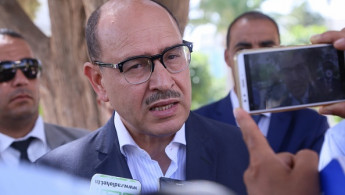Tunisian police arrest candidate for presidential election
The head of a Tunisian opposition party, Lotfi Mraihi, who has announced his intention to run in a presidential election set for October, has been arrested by police on suspicion of money laundering.
Mraihi, the leader of Republican Union Party, and one of the most prominent critics of President Kais Saied, was arrested late on Wednesday, politicians and local media said.
Tunis court spokesman said earlier this week that Mraihi faces charges of money laundering and opening bank accounts abroad without a licence from the central bank.
Mraihi's arrest comes as opposition parties, many of whose leaders are in prison, accused Saied's government of exerting pressure on the judiciary to track down Saied's rivals in the 2024 elections and pave the way for him to win a second term.
Elected president in 2019, Saied has not officially announced his candidacy for the election expected in October 6, but is widely expected to seek a second term. He said last year he will not hand power to what he called non-patriots.
Abir Moussi, the leader of the Free Constitutional Party and a prominent candidate, has been in prison since last year on charges of harming public security.
Moussi's party says she was imprisoned in an effort to remove her from the election race and avoid a strong candidate. The authorities deny this.
Other candidates including Safi Saeed, Nizar Chaari and Abd Ellatif Mekki are facing prosecution for alleged crimes such as fraud and money laundering.
Mondher Znaidi, a prominent potential candidate who is living in France, is also facing prosecution on suspicion of financial corruption.
The opposition says fair and credible elections cannot be held unless imprisoned politicians are released and the media is allowed to do its job without pressure from the government.
Saied seized almost all powers in 2021, dissolved parliament, and began ruling by decree in a move that the opposition described as a coup. Saied said his steps were legal and necessary to end years of rampant corruption among the political elite.
Prominent opponents of the president have been detained since last year on charges of conspiring against state security, in a crackdown that included businessmen, media figures and politicians.





 Follow the Middle East's top stories in English at The New Arab on Google News
Follow the Middle East's top stories in English at The New Arab on Google News


